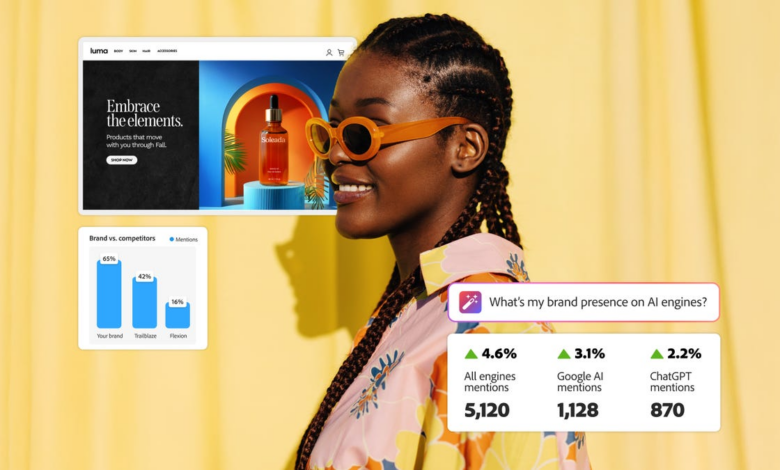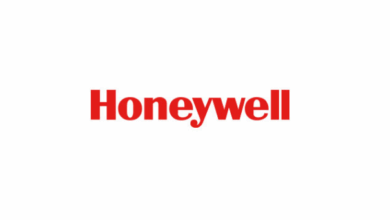SEO for chatbots: How Adobe aims to help brands get noticed in the age of AI

For years, Google has effectively been the sole gatekeeper to online advertising, determining which brands get seen and which get lost in the noise. That paradigm is slowly but surely starting to shift, as people increasingly turn to AI chatbots like ChatGPT to find information online. Brands are having to adjust their marketing strategies in response.
On Monday, Adobe introduced a platform designed to help advertisers capitalize on the wave of large language models (LLMs) that’s been sweeping the internet.
Also: Sam Altman says the Singularity is imminent – here’s why
The company’s new LLM Optimizer — announced at Cannes Lions, one of the ad industry’s biggest annual events –provides some essential tools to help marketing teams keep track of their brands’ visibility as their customers start to spend more time interacting with AI chatbots.
“Generative AI interfaces are becoming go-to tools for how customers discover, engage, and make purchase decisions, across every stage of their journey,” Loni Stark, vice president of strategy and product at Adobe Experience Cloud, said in a statement. “With Adobe LLM Optimizer, we are enabling brands to confidently navigate this new landscape, ensuring they stand out and win in the moments that matter.”
How does it work?
The Adobe LLM Optimizer can be thought of as a window into a brand’s performance across a suite of generative AI tools, including (but not limited to) ChatGPT, Gemini, and Claude. Crucially, the platform also allows SEO leaders, digital marketers, and others to make quick adjustments to their online publishing strategies to help their brands stand out more conspicuously.
For example, marketers can receive updates when their own content — links to a website, for example — is included in an LLM’s response to a user query, providing clarity into how, when, and where their brands are appearing across the output of AI tools. This can also help them to understand the kinds of questions that customers are asking, allowing for further refinement of marketing tactics.
Also: Meet the most important AI tool that no one is talking about – but everyone needs
The platform also includes a “recommendation engine” that constantly monitors LLM responses and suggests adjustments to online content that can boost brand visibility.
Recommended changes can be approved with a single click, negating the need for time- and labor-intensive web development processes. Adobe’s system ensures that approved changes to branded content strategy adhere to all relevant brand design guidelines. The system can also generate reports that can be shared with other teams.
Brands can access the LLM Optimizer now through their Adobe Experience Manager accounts — it’s also available as a standalone app. Pricing varies depending on the size and particular needs of each enterprise customer.
The gradually shifting search landscape
While the use of chatbots like ChatGPT is certainly on the rise, Google still remains the undisputed king of online search.
One study from earlier this year, for example, found that Google fielded around 373 times more search queries in 2024 than ChatGPT did. (That study, however, used a fairly narrow definition for “search,” so the number of people who are actually using ChatGPT to find information online could in fact be much higher.) In December, OpenAI CEO Sam Altman said that ChatGPT fields around 1 billion messages per day; Google, on the other hand, receives an estimated 8.5 billion searches per day.
AI tools are also reshaping users’ moment-to-moment interactions with the internet. Since Google first rose to prominence in the early 2000s, most of us have grown accustomed to receiving a list of links for every web search. The ordering of those lists has been dictated by the company’s proprietary algorithm, which brands have spent years trying to understand and manipulate. Google AdSense, meanwhile, has matched advertisers with web publishers, allowing the latter to earn money by hosting relevant ads on their websites.
Also: ChatGPT has officially replaced Google Search for me – here’s why
Google’s dominance in search and online advertising isn’t going to disappear anytime soon, but the rise of generative AI is starting to subtly change the calculus for advertisers. For the first time in years, brands have to account for the fact that a growing number of their customers are turning to new online tools to, for example, receive personalized product recommendations or compare one service provider against another.
The release of Adobe’s LLM Optimizer reflects a growing awareness among big tech companies that, as the nature of consumer web interactions changes, so too must some of the foundational approaches to digital marketing strategies.
Want more stories about AI? Sign up for Innovation, our weekly newsletter.






